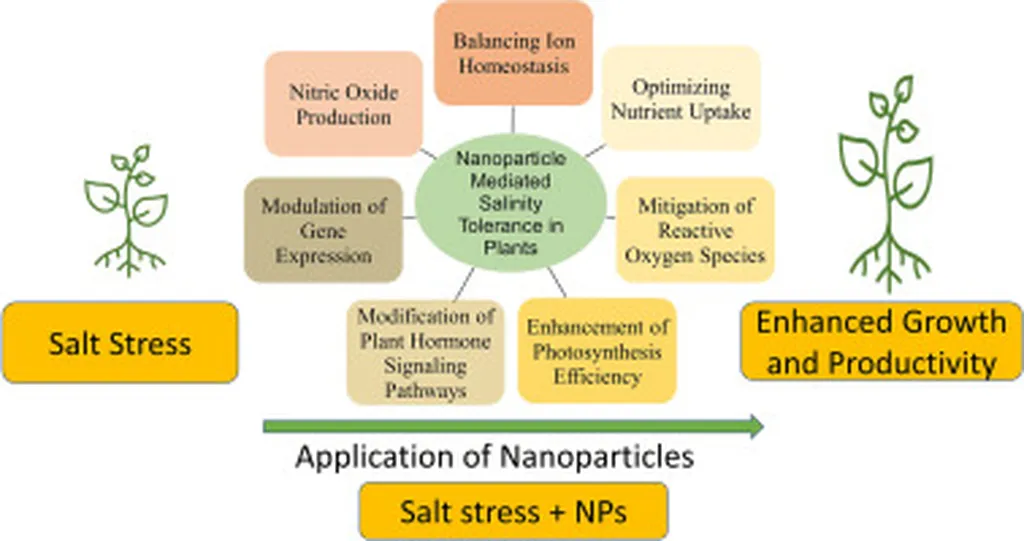In the heart of Punjab, India, a groundbreaking study led by Sudhir Kumar Upadhyay at Lovely Professional University is reshaping our understanding of soil health and agricultural sustainability. The research, published in *Plant Nano Biology* (which translates to *Plant Nano Biology* in English), delves into the intricate world of biocompatible-metal nanoparticles (B-NPs) and their potential to revolutionize soil health management.
Soil degradation, a pressing global issue, has long been exacerbated by chemical contaminants and intensive agricultural practices. Upadhyay’s study highlights the promise of B-NPs, specifically ZnO, Fe₂O₃, Ag, and CuO, in restoring microbial balance and enhancing enzyme activity in soil. “These nanoparticles interact with soil microbes in ways that significantly improve nutrient cycling and microbial diversity,” Upadhyay explains. This interaction is crucial for maintaining healthy soil, which in turn supports thriving agriculture.
The study explores how B-NPs influence soil enzymatic activities, such as dehydrogenase, urease, and phosphatase, which are vital for the nitrogen and phosphate cycles. Upadhyay notes, “At optimal concentrations, these nanoparticles enhance microbial respiration and activate key enzymatic processes, leading to improved soil structure and nutrient bioavailability.” This enhancement can mitigate environmental issues and boost agricultural productivity, offering a sustainable solution for soil health management.
The research also addresses potential ecological consequences, emphasizing the need for careful optimization of B-NP formulations. “We must understand the molecular interactions and establish control mechanisms to ensure safe and sustainable use,” Upadhyay states. This cautious approach is essential for harnessing the full potential of B-NPs without compromising environmental safety.
The implications of this research extend beyond agriculture, with significant commercial impacts for the energy sector. Healthy soil is fundamental to bioenergy production, and the use of B-NPs could enhance the efficiency and sustainability of bioenergy crops. As the world seeks innovative solutions to environmental challenges, Upadhyay’s work offers a promising path forward. “This research provides a future perspective for addressing ecotoxicity and bioaccumulation issues, paving the way for safer and more effective soil health management,” he concludes.
In the quest for sustainable agriculture and environmental stewardship, Upadhyay’s study stands as a beacon of hope. By unlocking the potential of biocompatible-metal nanoparticles, we can cultivate healthier soils, more resilient crops, and a greener future.

